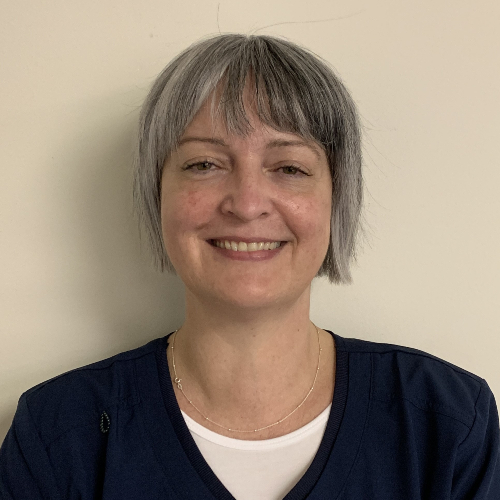The rates of dementia are increasing within the United States and worldwide, with someone developing the condition every 3 seconds. According to the Centers for Disease Control; estimates show that by the year 2040, over 14 million people in the United States may be diagnosed with the condition. Currently, more than 55 million people are diagnosed across the world, and Alzheimer’s Disease International predicts that number will increase to 78 million by the year 2030.
While these statistics are alarming, knowledge is power. At Innova Primary Care, we seek to change healthcare from the inside out. Part of our mission is providing information to our patients so they can actively participate in their health. Let’s dive deeper into dementia, types, risk factors, and early warning signs to keep you up to date on current information and ways you can take charge of your health.
What is dementia?
Dementia is an umbrella term for brain disorders or conditions impacting cognition, emotions, behavior, and thinking. We should note that dementia is a collection of symptoms that affect daily life and is much more than forgetting where you placed your keys or what you did last week. Interestingly, dementia is a relatively new diagnosis arising in the 20th century, mainly because pre-industrial revolution people often did not live long. In the 1970s, after decades of research and awareness, it became a public health crisis as citizens were living longer, and the impact of cognitive decline was understood more fully.
In another turn of events, rates of dementia in the United States dropped by roughly 3 percent from 2000 to 2012, leading researchers and clinicians to believe that people had a better understanding of the condition and began to eliminate risk factors. However, dementia is still considered a worldwide health crisis, with so much still unknown.

There is a difference between forgetting and dementia
As previously mentioned, we all forget things from time to time. Perhaps you walk into a room with intent but cannot remember why. It is normal to occasionally forget a person’s name or lose interest in things that once excited you. One of the most challenging aspects of this condition is that it does not look the same in everyone, and some age-related memory issues will most likely impact all of us. However, memory loss associated with dementia is severe enough to challenge daily life, social interactions, and work life.
What is normal for you may not be for someone else and vice versa. For this reason alone, do not attempt to self-diagnose. Contact your healthcare provider for a screening if you believe you are someone you know has this condition before you read too far into the symptoms themselves.
Types of dementia
Now that we know dementia is a general term, we will take a closer look at some of the most common types of dementia.
First is Alzheimer’s disease. Alzheimer’s, a progressive disease, is a disorder of the brain causing memory loss and issues with cognition and is the most common type, with approximately 60 to 80 percent of all dementia diagnoses resulting from Alzheimer’s.
Those who have had a stroke may develop vascular dementia, which results from a lack of blood flow to the brain. Vascular dementia may result from a single stroke or multiple strokes over time.
Frontotemporal dementia (FTD) impacts the nerve cells of the temporal and frontal lobes of the brain and is unique in how it affects personality and behavior. Those with FTD may also notice language impairment and struggle with movement.
Lewy body dementia occurs due to a buildup of the alpha-synuclein protein in the brain, which causes memory loss, impaired problem-solving skills, and struggles with thinking and movement.
For some, dementia may be the result of an underlying medical issue that may be reversible. For instance, problems with medication, such as side effects or vitamin deficiency, can result in dementia-like conditions. It is possible that imbalances with the thyroid hormone can mimic dementia. In these instances, it is crucial for healthcare providers to do testing to see if a reversible underlying condition is at play.
Warning signs
Unfortunately, there are not many early warning signs of dementia. In its earliest stages, dementia causes memory issues that impair daily life. These memory issues include forgetting important dates and times whilst not remembering them later and repeatedly asking the same question. Struggling to find the right words also falls into the early warning signs category. But, please remember, this is more than an occasional forgetfulness.
Mood changes may also accompany dementia. Depression, fearfulness, anxiety, and impulsive behaviors often accompany these mood shifts, as does apathy. Losing interest and becoming emotionally flat may be a warning sign as well.
Confusion is often a hallmark of dementia. It may be more challenging for those with this condition to remember faces. Those with dementia may struggle to remember the time, the day of the week, or follow directions. Poor judgment is typically inevitable with cognitive decline due to the inability to interpret data or situations.

Diagnosing dementia
Dementia requires a medical diagnosis, so you must speak with a healthcare professional if you are concerned about yourself or someone you love. Physicians will begin by inquiring about medical history and conduct a physical exam. They will ask you about current symptoms and changes in cognition, mood, behavior, movement, etc.
In addition to medical history and a physical exam, a mental health status exam is performed. For example, the MMSE (Mini-Mental State Examination) consists of 11 questions about temporal and spatial orientation, short-term memory, attention, concentration, language skills, understanding, and the ability to understand the spatial and visual relationship between objects.
Furthermore, lab tests to check for health conditions that may be contributing to memory impairment, along with imaging tests such as an MRI or CT scan to check for any abnormalities, may be a part of the diagnostic process.
Treatment options for dementia vary depending on the cause, so knowing the reason for the condition is crucial.



 About
About

 About
About About
About About
About
 About
About About
About

 About
About About
About About
About About
About











